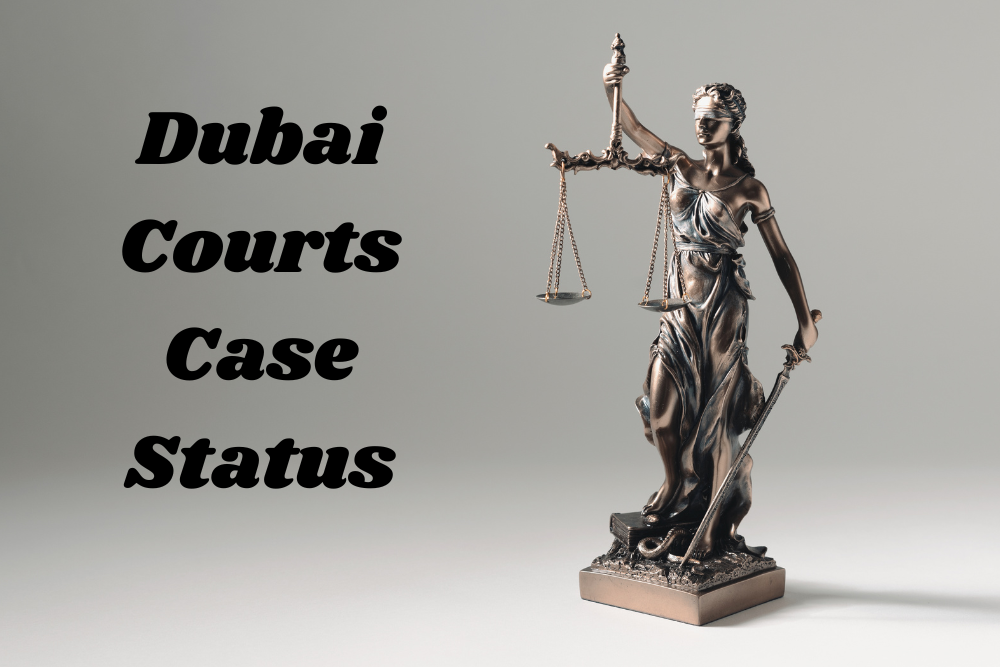The legal landscape in Dubai is intricate and dynamic, with Dubai Courts playing a pivotal role in administering justice and resolving disputes. Understanding the Case Status in the Dubai Courts System is essential for anyone involved in legal proceedings or seeking information about ongoing cases. In this comprehensive guide, we will delve into the intricacies of Dubai Court Case Status, including its structure, procedure, and how to access the case information.
Overview of Dubai Courts
Dubai Courts form an integral part of the Emirate’s judicial system, responsible for adjudicating civil, commercial, and personal case status matters in Dubai. Established to uphold justice and uphold the rule of law, Dubai Courts operate under the guidance of a legal framework that ensures fair and transparent proceedings.
Structure of Dubai Courts
Dubai Courts are organized into various divisions, each specializing in specific types of cases:
#1: Civil Courts: Handle civil disputes, including contracts, property, and personal injury cases.
#2: Commercial Courts: Focus on commercial disputes, such as business contracts, trade issues, and corporate matters.
#3: Criminal Courts: Adjudicate criminal cases, ranging from minor offenses to serious crimes.
#4: Personal Status Courts: Deal with family matters, including marriages, divorce, child custody, and inheritance.
Each court division operates under its set of procedures and regulations tailored to the nature of the cases it handles.
Dubai Courts Case Status System
The Dubai Courts Case Status System is designed to provide transparency and accessibility to individuals involved in legal proceedings. Whether you are a plaintiff, defendant, lawyer, or concerned party, understanding the status allows you to track progress, monitor developments, and stay informed about judicial procedures.
Types of Case Status
In Dubai Courts, several types of case statuses indicate the progress and status of legal proceedings. Here are common types of case status you may encounter:
Pending: Indicates that the case is awaiting trial or further action. It means that the court has accepted the case for consideration but has not yet initiated formal proceedings.
Under Review: Implies that the court is examining the case details, evidence, and legal arguments. When a case is under review, it means that the court is examining the case details, evidence, legal arguments, and other relevant factors before proceeding to the next stage.
Schedule for Hearing: Indicates a future court date for the case to be heard. This status confirms that a specific date has been set for the case to be heard in court. It is common for cases to be scheduled for a hearing to allow parties to present their arguments and evidence.
In Progress: Denotes ongoing proceedings, including hearings, witness testimonies, and legal arguments. This includes court hearings and all activities related to the case proceeding.
Adjourned: Occurs when a court session is temporarily suspended and rescheduled for a later date. It means if a court session is temporarily suspended or postponed to a later date, the case status is categorized as Adjourned. This may happen due to various reasons, such as the unavailability of parties, and legal representatives, or the need for additional time to review evidence.
Judgment Reserved: Indicates that the court has heard all arguments and evidence but has not yet delivered a verdict. After all arguments, evidence, and hearings are completed, the court may reserve judgment.
Judgment Issued: Signifies that the court has rendered a decision or verdict on the case. When the court delivers a decision or verdict on the case, the status changes to “judgment issued’. This signifies the conclusion of the legal proceedings and the court’s determination on the matter.
Appeal Filed: Indicates that either party has appealed against a court’s decision, leading to further review and proceedings. It means, if either party disagrees with the court’s decision, they may file an appeal. The Dubai Courts Case Status then reflects that an appeal has been filed, leading to further review and proceedings in the appellate court.
These statuses play a crucial role in informing parties, legal representatives, and the public about the progress, stages, and outcomes of legal procedures in Dubai Courts. They help ensure transparency, accountability, and adherence to legal procedures throughout the judicial process.

Accessing Status Information
Online Portals
Dubai Courts provides online platforms where registered users can access the status information. These portals often require login credentials and provide secure access to case details, hearing schedules, and judgments.
Legal Representatives
Lawyers and legal representatives representing parties in a case have direct access to the status updates through official channels. They can provide clients with timely information and updates on proceedings.
Court Notifications
Parties involved in the case receive notifications and updates directly from the court regarding hearing dates, the status changes, and judgments. These notifications are crucial for staying informed and complying with legal requirements.
Public Records
Certain case information, such as judgments and legal decisions, may be accessible to the public through official records maintained by Dubai courts. However, sensitive details or confidential information may be restricted from public access.
Importance of Dubai Courts Case Status Monitoring
Case monitoring in Dubai refers to the process of tracking and managing the progress of legal cases within the Emirates. This system has played a crucial role in ensuring transparency, efficiency, and accountability within the legal framework.
One of the key aspects of status monitoring is the use of technology and digital platforms. Dubai has leveraged advanced technologies to streamline case tracking and management. These include online portals where stakeholders, such as lawyers, clients, and judicial authorities, can access real-time updates on case status, including hearing dates, documents filed, and judgments delivered.
The implementation of the case monitoring system has led to several benefits. Firstly, it has improved access to justice by providing stakeholders with timely information, reducing the need for physical visits to courts. This has resulted in time and cost savings for all parties involved.
Additionally, case monitoring enhances transparency and accountability in the legal system. It allows for better tracking of case progression, reduces delays, and facilitates efficient case management. This, in turn, contributes to a more robust and reliable judiciary, instilling confidence in the legal system among the public and businesses operating in Dubai.
Overall, case monitoring in Dubai exemplifies the Emirate’s commitment to leveraging technology for effective governance and judicial modernization.
Benefits of Monitoring Dubai Courts Case Status
Monitoring Dubai Court cases offers several benefits:
Transparency: Provides clarity and transparency regarding the progress and status of legal proceedings.
Strategic Planning: Enables parties to plan legal strategies, prepare for hearings, and meet deadlines effectively.
Compliance: Ensures compliance with court orders, deadlines, and legal obligations.
Decision Making: Helps parties make informed decisions based on the current status and developments in the case.
Communication: Facilitates communication between parties, lawyers, and the court enhancing collaboration and understanding.
Read also: Lawyers in Dubai/Criminal Lawyers in Dubai
Conclusion
Navigating the Dubai Courts Case Status system requires familiarity with its structure, proceedings, and access methods. Whether you are directly involved in a legal matter or seeking information as a concerned part, understanding the case status is essential for staying informed, making informed decisions, and participating effectively in the judicial process. By leveraging online portals, legal representation, court notifications, and public records, individuals can track the case progress, monitor developments, and ensure compliance with legal requirements, contributing to a fair and transparent justice system in Dubai.


